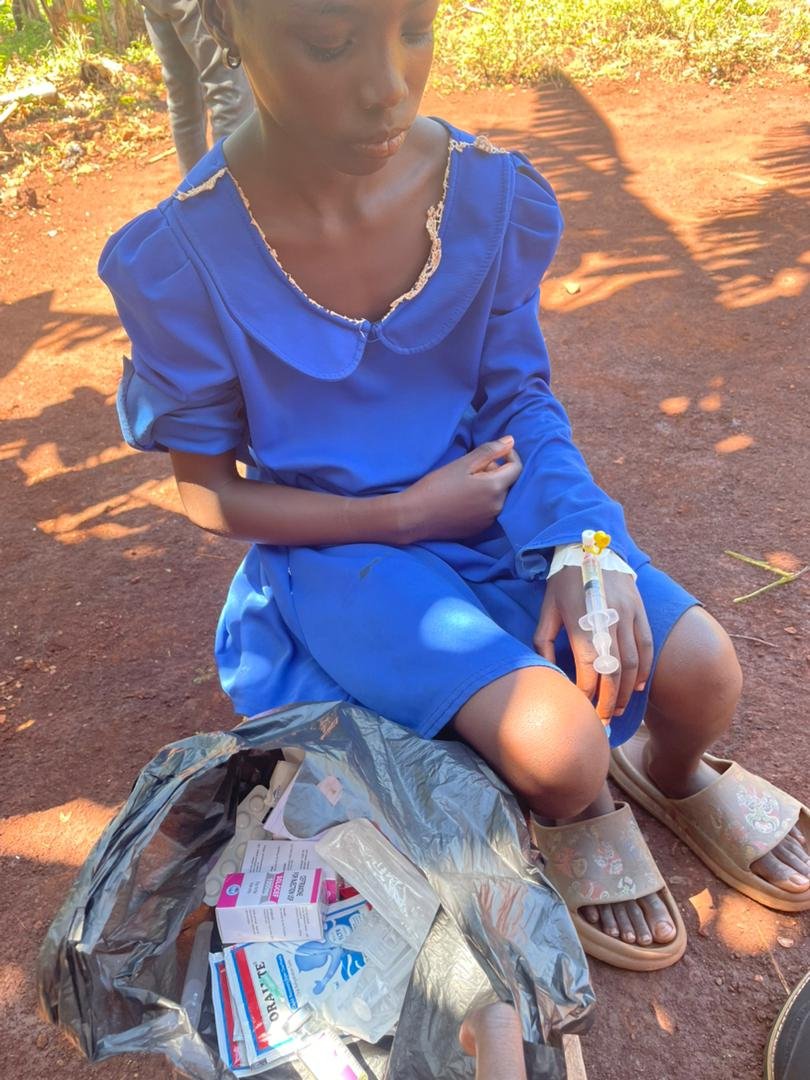THE HISTORY OF JA JA MORRIS CHRISTIAN HOSPITAL
In January 2023, Leona Dobbs and her husband visited Dr. Bakanwa in Uganda on the island of Namiti. He asked them to pray for a young boy named Morris who was very sick. After praying for him, the Dobbs were informed that he needed transport to be taken to the mainland to be treated at the local hospital. His mother did not have the funds to pay for the transportation. The Dobbs’ gladly informed her that they will help her with the funds to get the necessary transport. They also asked her to call and let them know if she needed any more funds once at the hospital. She left on the next available boat to the mainland. The cell phone services on the island was poor as Morris’ mother tried to contact them but she couldn’t. She needed money, $27, to purchase the necessary medication. The fact that the mother lacked only $27 meant that Morris was not treated and, very sadly, ended up passing away. Putting it simply, the Dobbs’ said, “We were hurt”.
Dr. Derrick asked the Dobbs’ to help him establish a charitable organization/hospital to help provide free and truly affordable healthcare services for people in need so that others like Morris would not die. Ja Ja Morris Christian Hospital was therefore conceived and will soon officially open with a medical clinic in Bufula, supporting those in need, such as sick children and mothers, with medical equipment. For example, labor kits will be provided for pregnant mothers and the funds needed to buy medicine for the children will be covered. The clinic will later be transformed into a hospital for both mothers and children in order to serve the people of Bufula and the surrounding villages, as well as Uganda at large.
In 2020, Dr. Bakanwa Derrick joined medical school. He thought that by joining the medical field he would help to solve the limited access to healthcare services in Uganda. However, throughout his medical placement he observed a number of challenges in relationship to accessing healthcare services which majorly affected women and their children. This was due to them being the largest vulnerable group seeking medical attention. During his practice, many neonates, infants, children and mothers - including pregnant mothers - could not fully access healthcare services because of its inadequacy, not being available/too far away, available but expensive, or money-before-service-delivery which denied the chance for the very needy and poor to have an opportunity to access medical services. Also, some were simply not aware of healthcare services, only further demonstrating the dire need for others to help.
There is a saying which he used to say hurt him: “omunaku wakufa” (the poor will die), meaning that without money you can’t get medical attention. This was attributed to facts including that medical diagnoses are expensive or that drugs are not always available in places where the poor have access to it as the population greatly exceeds the capacity for patients. Therefore, mothers could die while giving birth or even post-delivery.
Even simple things like gloves and mother kits could not be sourced. There are long distances to travel from villages - where medical centers are absent - to towns. Reaching here should be the refuge, but no drugs or the necessary services are often the reality, meaning all that can be done for the patient is to write a prescription and send them on their way to go and buy it.
With this being the situation, Dr. Bakanwa started questioning everything and looked for ways to address the delays in accessing healthcare. Prayers were the order of the day during those times. He came up with the idea of establishing a hospital where mothers and their children could get free and affordable healthcare services. “Nomunaku alina okufuna obwidhandhabi” (even the poor have to get treated) and “atee ezila mama alina kuffa ngazala” (and no mother has to die while giving birth) can now be realised.



